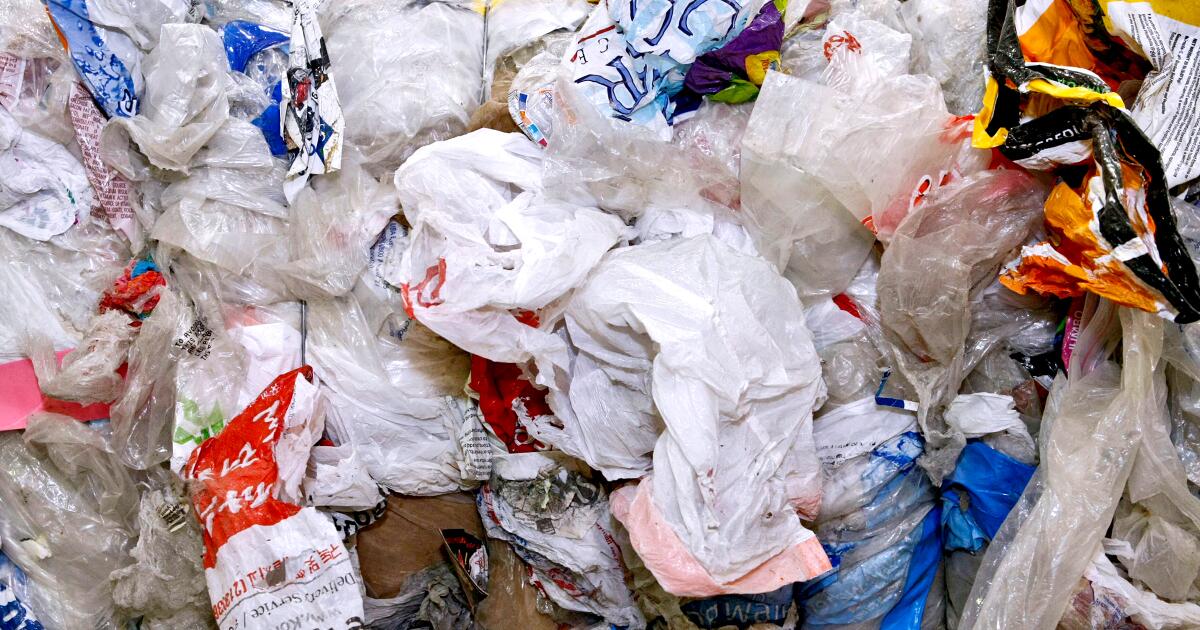- cross-posted to:
- [email protected]
- cross-posted to:
- [email protected]
It was a decade ago when California became the first state in the nation to ban single-use plastic bags, ushering in a wave of anti-plastic legislation from coast to coast.
But in the years after California seemingly kicked its plastic grocery sack habit, material recovery facilities and environmental activists noticed a peculiar trend: Plastic bag waste by weight was increasing to unprecedented levels.
According to a report by the consumer advocacy group CALPIRG, 157,385 tons of plastic bag waste was discarded in California the year the law was passed. By 2022, however, the tonnage of discarded plastic bags had skyrocketed to 231,072 — a 47% jump. Even accounting for an increase in population, the number rose from 4.08 tons per 1,000 people in 2014 to 5.89 tons per 1,000 people in 2022.
The problem, it turns out, was a section of the law that allowed grocery stores and large retailers to provide thicker, heavier-weight plastic bags to customers for the price of a dime.



Ireland has a plastic bag levy of 22c per bag. Most supermarkets don’t even bother selling single use bags any more. If you want to buy a bag, then your choice is a thicker reusable bag or a “bag for life” that most supermarkets will charge you 70c or more for.
I suppose some people might throw them away but more likely they hang onto them because they cost so much to begin with.
In some supermarkets like LIDL and Aldi it’s also quite common for someone to grab an empty cardboard box that (the stores usually toss them in a big mesh bin) and use that to carry stuff away. These can be put into recycling.
There is also a drive to ban single use plastics like cutlery, straws, cups etc. Ireland also just imposed a refundable tax on plastic bottles and cans - supermarkets have machines that ingest returned containers and print out a credit slip.